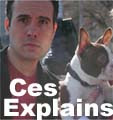The publisher of Harper's Magazine, John R. MacArthur, takes a look at the myth of Rahm Emanuel's strategy for victory:
Now, a month into the new Democratic majority, it's possible to conclude that Americans voted for oversight—and the more distant hope of withdrawal from Iraq—without fully understanding how pro-war (or if you prefer, anti-anti-war) the opposition party really is.I wouldn't even mind Rep. Emanuel's retroactively taking credit for an anti-war Democratic victory, if I believed for a minute that he would work for an anti-war Democratic Congress.To analyze this paradox it's necessary to consider the work of Rep. Rahm Emanuel (D.-Ill.), the hatchetman for Bill and Hillary Clinton and boss of the Democratic Congressional Campaign Committee. Emanuel labored hard to keep strongly anti-war candidates off the Democratic line and slate Iraq equivocators instead.
Emanuel's most publicized recruit was Tammy Duckworth, the former Army helicopter pilot who lost both her legs in Iraq. With national-party backing, Duckworth defeated the more anti-war Christine Cegelis in the primary in Illinois's 6th District (Senator Clinton's native grounds). But despite her martyrdom, Duckworth's cautiously critical position on Iraq (“we can't just pull up stakes and create a security vacuum”) wasn't enough to defeat the Republican Peter Roskam in the general election.
Of the 22 Democratic candidates initially backed by Emanuel and his sponsors in the Clinton machine, only one, Peter Welch in Vermont, favored speedy withdrawal from Iraq. Welch won easily. Of the other 21, only 8 were victorious last month. And one of Emanuel's original picks, Steve Filson, didn't make it past his anti-war primary opponent, Jerry McNerney, who prevailed decisively over the incumbent Republican in California's 11th District.
Before the election, Emanuel and his Senate counterpart, Charles Schumer, pleaded “pragmatism”—that the Democrats couldn't be seen as the party of “cut and run” if they wanted to attract “moderate” voters. After the election, Emanuel made a quick costume change, and brazenly retailed a story to The New York Times that portrayed him as the architect of a “brilliant” strategy that exploited the mounting anti-war sentiment in the country.
Under the headline, “Democrats Turned War into an Ally” the Times's credulous political reporters parroted Emanuel, saying that “the Democratic strategy of running against the war, which would have seemed impossibly risky three months earlier, when the White House had urged its candidates to embrace the war, was encouraged by poll after poll, not to mention regular reports of American casualties.”
Impossibly risky? What nonsense. Polls showed majority support for withdrawal in early August, and anger over Iraq dates back much further. That's what encouraged long-shot candidates like Webb to challenge entrenched, pro-war incumbents.













No comments:
Post a Comment